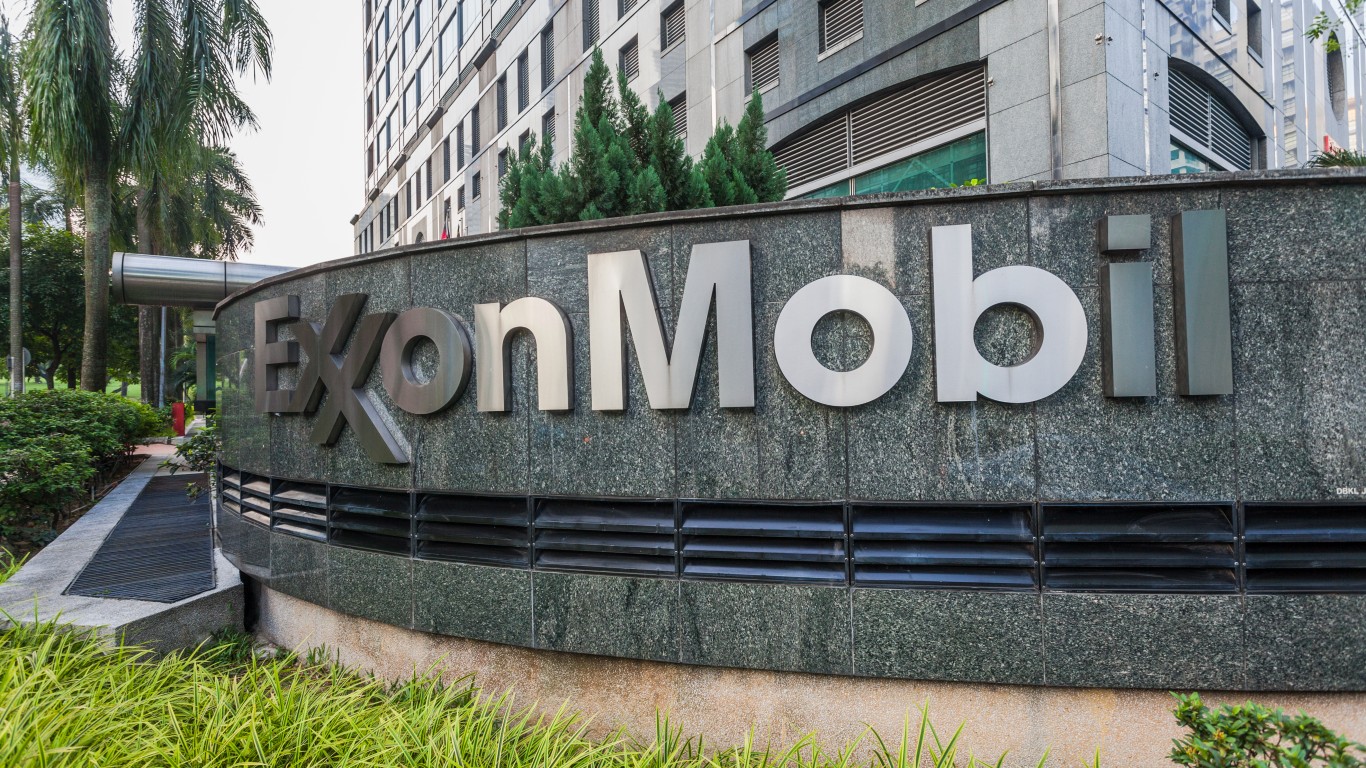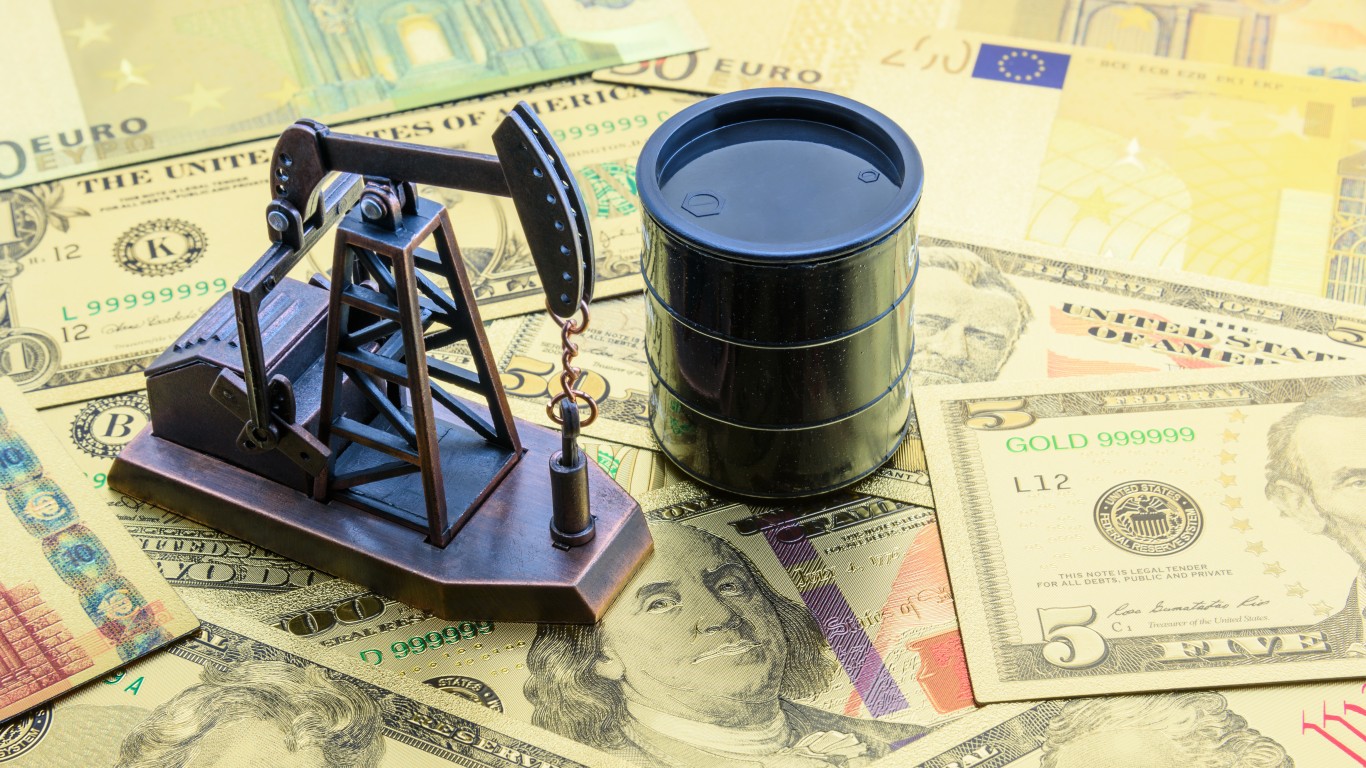Investing
Pioneer Natural Resources (PXD) Dividend: Is It a Buy, Sell or Hold?

Published:

The October announcement that Exxon Mobil Corp. (NYSE: XOM) would pay some $59.5 billion in stock for Pioneer Natural Resources Inc. (NYSE: PXD) raises a real question. Does it make sense to buy Pioneer stock before the deal closes to take advantage of the company’s 6%+ dividend yield?

Over the past 12 months, Exxon has paid $14.87 billion in dividends and reported free cash flow of $37.83 billion. Pioneer has paid $3.89 billion in dividends with free cash flow of $4.15 billion.
Exxon Mobil began paying a quarterly dividend of $0.95 per share just this month. The payment represents a 4.4% year-over-year increase and raised Exxon’s dividend yield to around 3.7%. Over the past four quarters, Exxon has paid dividends totaling $3.68 per share. (These 20 American companies have the worst reputations.)
Pioneer paid a $3.20 quarterly dividend to shareholders on December 22. The company began paying a variable dividend in September of 2021. Quarterly payments since then have run between $0.56 per share to $8.50 per share. Including the December payment, Pioneer has paid dividends totaling $7.42 per share over the past four quarters. The dividend yield for the next twelve months would be around 6% based on the December payment.

Barring a regulatory or other hurdle, the acquisition will close in the first half of 2024. What are the chances that Pioneer will continue to pay a dividend yield of around 6% until the closing? In the first three quarters of fiscal 2023, Pioneer’s base dividend totaled $3.60, and the variable portion of the dividend totaled $10.76 per share.
The merger agreement with Exxon Mobil restricts the company from paying a variable dividend after the fourth-quarter payment. If Pioneer’s previous practices hold, the shares will go ex-dividend in late February and the fourth-quarter payment will be made in late March. Even if the deal doesn’t close by the end of the first quarter, Pioneer’s luxurious dividend won’t be paid for the second quarter.
Because the variable portion of Pioneer’s dividend depends on the price of crude, what can a shareholder expect for a fourth-quarter dividend? Here are crude price changes in each of the first three quarters of this year, along with Pioneer’s dividend payments. The fourth-quarter WTI price change reflects the price on December 22, 2023.
| WTI price change | Base per share | Variable per share | Total per share | |
|---|---|---|---|---|
| 1Q 2023 | -$5/barrel | $1.10 | $4.48 | $5.58 |
| 2Q 2023 | -$10/barrel | $1.25 | $2.09 | $3.34 |
| 3Q 2023 | +$20/barrel | $1.25 | $0.59 | $1.84 |
| 4Q 2023 | -$15/barrel | n/a | n/a | n/a |

If the Exxon acquisition closes early enough in the first quarter, Pioneer shareholders stand to receive a dividend payment of around $2.70 based on the deal’s exchange rate. In this scenario, holding onto the stock is a good idea. Selling the stock would not be a good idea, and buying more is a gamble.
More likely is that the merger won’t be completed until the second quarter. In that case, holding onto Pioneer stock until the last of the variable dividends is paid is still a good idea. Likewise, selling the stock is still not a particularly good idea. Buying more Pioneer stock will neither help nor hurt because the dividend payment will be the same as Exxon’s payment.
There is a remote possibility that Exxon and Pioneer could amend the restriction on paying the variable dividend, but hope is not a plan.
Thank you for reading! Have some feedback for us?
Contact the 24/7 Wall St. editorial team.